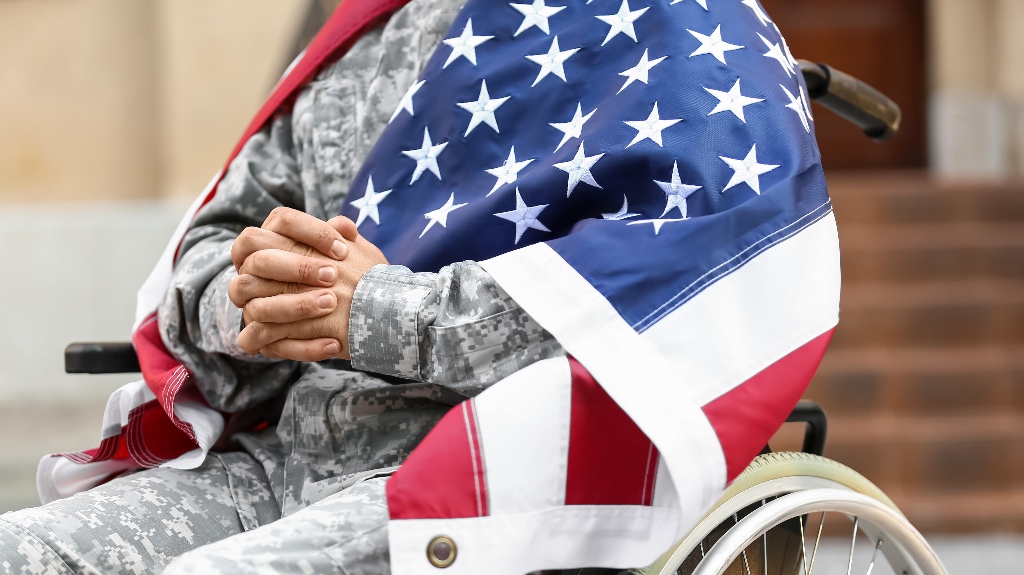Navigating the VA disability system can be a long and frustrating journey for veterans seeking compensation for service-related injuries or illnesses. While some claims are approved quickly, others can be notoriously difficult to win. We will explore the types of VA disability claims that are the hardest to get approved and the reasons behind the challenges. Coskrey Law is here to help you with your VA disability claims.
1. Mental Health Conditions (e.g., PTSD, Depression)
Post-Traumatic Stress Disorder (PTSD) is one of the most frequently filed claims by veterans, but it’s also one of the hardest to get approved. This is due to several factors:
- Burden of Proof: Veterans must demonstrate that their mental health condition is directly related to their military service, which can be challenging without solid evidence.
- Lack of Documentation: Veterans often struggle to provide documentation of mental health issues from their time in service, particularly if they did not seek help while in the military.
- Subjective Symptoms: Mental health conditions can be more difficult to quantify compared to physical injuries, making it harder to convince the VA of the severity of the condition.
2. Sleep Apnea
Sleep apnea is another commonly filed VA disability claim but is frequently denied. Veterans may face challenges because:
- Service Connection Difficulty: Establishing a direct connection between military service and sleep apnea is often complex. Veterans need to show that the condition began or was aggravated during their time in the service.
- Requirement of a Sleep Study: The VA typically requires an official sleep study diagnosis to approve a claim. If a veteran did not undergo a sleep study during service, it can be difficult to prove the condition is service-related.
3. Tinnitus and Hearing Loss
While tinnitus is one of the most common VA disability claims, hearing loss is notoriously hard to get approved. The challenges include:
- Audiology Standards: The VA has strict standards for what constitutes “hearing loss.” Even if a veteran suffers from hearing issues, their case may be denied if they don’t meet these specific thresholds.
- Noise Exposure Documentation: Veterans must provide clear documentation of noise exposure during service. Without this, it can be difficult to establish a direct service connection.
4. Military Sexual Trauma (MST)
Claims for conditions related to Military Sexual Trauma are particularly challenging because:
- Underreporting: Many MST survivors do not report the assault while they are in the military, leaving a gap in documentation. This can make it harder to establish that the trauma occurred during service.
- Complex Mental Health Issues: MST-related claims often involve complex mental health conditions, such as PTSD or depression, which may require extensive evidence and medical opinions.
5. Chronic Pain Without a Clear Diagnosis
Chronic pain is another difficult claim for veterans. Veterans may suffer from long-term pain but face challenges if:
- Lack of Diagnosed Condition: Chronic pain claims without a clear, underlying medical diagnosis are often denied by the VA, as the system tends to favor conditions with well-defined medical explanations.
- Vague or Inconsistent Symptoms: Symptoms that are not well-documented or fluctuate can make it difficult for the VA to gauge the severity and impact of the condition.
Why Are Some VA Claims So Hard to Get Approved?
The VA claims process is complex, and certain conditions are more difficult to prove because they often require extensive documentation, medical opinions, and a clear service connection. Additionally, subjective conditions, such as mental health disorders or chronic pain, lack the objective medical evidence typically seen with physical injuries, making them harder for the VA to evaluate.
How to Strengthen Your VA Disability Claim
While some VA claims are harder to get approved, there are steps veterans can take to improve their chances:
- Gather Evidence: The more medical records, service records, and buddy statements you have to support your claim, the better.
- Get Expert Help: VA disability attorneys and advocates can guide you through the process and help you gather the right evidence for your case.
- Appeal Denied Claims: If your claim is denied, you have the right to appeal. Often, claims are approved on appeal when new evidence or a stronger argument is presented.
Reach Out to Coskrey Law Today
While some VA claims, such as PTSD, sleep apnea, and MST-related conditions, are particularly difficult to get approved, understanding the challenges and knowing how to build a strong case can increase your chances of success. If you’re struggling with a VA claim, getting legal assistance from a law firm like Coskrey Law can make a significant difference in securing the benefits you deserve.


